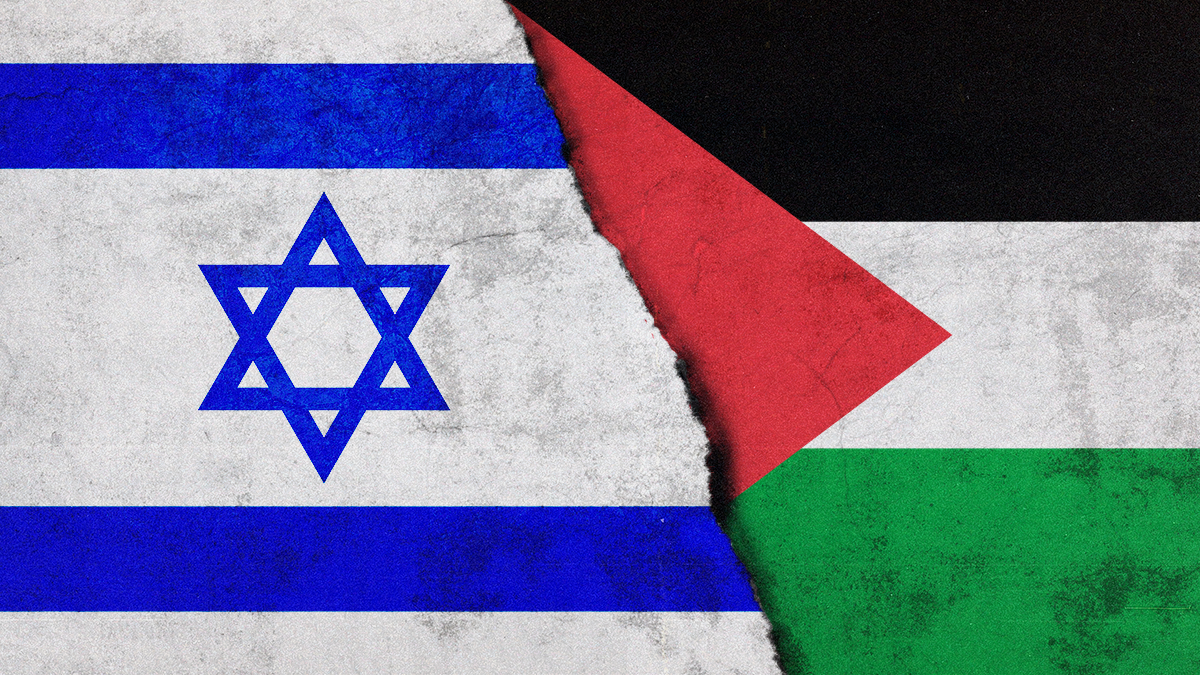The Israel-Palestine crisis is often described in biblical terms: “war in the holy land;” “Muslim v Jew;” or “the new Crusades.”
But while it has always had religious overtones, the ongoing conflict was originally about land: who had a right to it and who didn’t. It pitted Palestinian claims to the right of incumbency against Israeli assertions to the right of settlement and sovereignty.
Sadly, that distinction – land over faith – may no longer be valid.
Nearly 30 years ago, the Oslo Accords laid the foundations for a two-state peace deal between Israel and the Palestinians. The agreement was signed by leaders of the Israeli Labor party and the Palestinian Liberation Organization, led by Yasser Arafat.
To be sure, neither of these groups was shy about espousing maximalist ideas. The PLO had long refused to acknowledge Israel’s right to exist and had used violence to advance its aims. Meanwhile, Israeli Prime Minister Golda Meir famously asserted that there was “no such thing” as the Palestinians.
But in the end, Labor Zionists and Palestinian Liberation fighters were driven chiefly by worldly, nationalist ideas. This left them ideological room to make concessions. That room for compromise underpinned the Oslo Accords.
Sadly, since then conflict has evolved into a clash between religious zealots on both sides, backed by secular right-wing extremists.
On the Israeli side, the assassination of Israeli Prime Minister Yitzhak Rabin, one of the architects of Oslo, by a Jewish religious extremist in November 1995 may have marked the death knell for compromise.
Israeli Prime Minister Benyamin Netanyahu’s subsequent rise to power, and the Israeli government’s drift to the political and religious right ever since, ensured the territorial compromise envisaged in the Oslo deal could never be implemented as originally intended. The government that Netanyahu formed late last year was the most right-wing in Israel’s history, with senior cabinet figures who openly espoused – and worked toward – a territorially expansionist “Land of Israel” agenda.
Meanwhile, the Fatah-led Palestinian Authority proved corrupt and impotent in the face of Israeli intransigence, and the lack of progress elevated more radical Islamist groups like Hamas, which Israel had once viewed as a convenient counterweight to Arafat’s long-dominant PLO.
This inexorable shift rightward and into religious territory has not only driven us toward the current stage of the conflict, it also makes it harder to see a way to peace even when the dust from the latest violence settles.
Hamas’ slaughter of Israelis on Oct. 7, and the rising number of Palestinian civilians killed in Israel’s response since then, will fuel fresh resentment, anger, and extremism on both sides. Voices arguing for uncompromising and maximalist solutions will find succor and support as never before.
For the Israelis, Hamas’ killing spree will take Israel's security mentality back decades, to a time when it saw itself encircled by existential threats it was determined to subdue. And while the Israeli electorate may yet hold Netanyahu and his right-wing allies to account for policy failures that allowed Oct. 7 to happen, the damage to Israel’s psyche will run deep. Calls for peace with the Palestinians on equitable territorial terms will not be something most Israelis will want to consider for a long time.
For the Palestinians, meanwhile, the rising civilian death toll in Gaza, and the specter of a possible mass refugee crisis, will stoke extremism, giving more credence to radical voices that claim that an equitable peace deal with Israeli is a pipedream.
On both sides, then, there will be little room for voices of compromise.
But this trend won’t be limited only to Israel and the Palestinian territories. Israel’s retribution in Gaza is already stoking popular anger across the Arab world – belying the notion, which had become popular in recent years among Arab and Western governments, that the Palestinian issue was no longer an important one for the so-called “Arab Street.”
As a result, Arab governments are now looking to placate popular anger by allowing avenues for protest in support of the Palestinian cause. It is no accident that in Saudi Arabia the Grand Mufti of Mecca was allowed – almost certainly with Saudi Crown Prince Mohammed’s explicit permission -- to take a strikingly pro-Palestinian line in his first sermon following the Oct. 7 violence.
But that approach could easily spiral out of control in ways that pose threats to political stability, creating more fertile ground for precisely the kinds of Islamist and extremist ideas that governments across the region – particularly in Egypt, the Emirates and Saudi Arabia – have tried to crack down upon in recent years.
Theocratic Iran and its regional allies may stoke these fires as well, even if they still seem reluctant to be sucked into the current fighting for now. And their message will resonate with regional Islamist groups that have already shown their political potency.
All of this is something of a shock. Just a couple of weeks ago, it seemed that the Middle East, for all its problems, was moving toward greater stability and predictability. The desperate plight of the Palestinians was hardly improving, but the issue seemed contained, almost dismissed. A once unthinkable normalization deal was coming into focus between the Jewish State and Saudi Arabia.
The latest round of Israeli-Palestinian violence shattered those illusions. And with the nature of the conflict steeped more deeply than ever in maximalist, religious notions, the prospects for a lasting peace in the region look dim. There is always a chance that tragic war will lead to a fundamental recalculation on both sides, and that moderates will eventually win the day given the destruction that radicals have wrought. But don’t bet on it.
Raad Alkadiri is the managing director of Energy, Climate & Resources for Eurasia Group. He served as assistant private secretary to the UK Special Representative in Iraq from 2003-2004.
